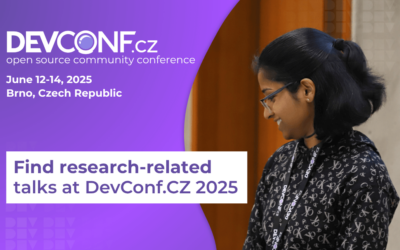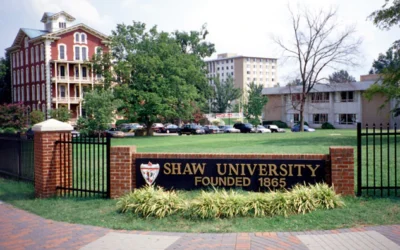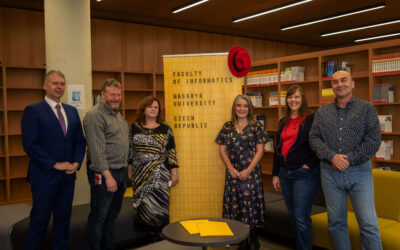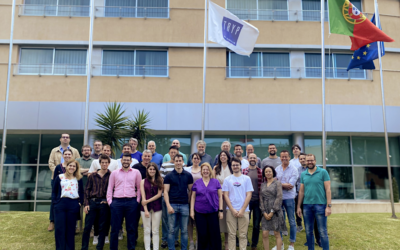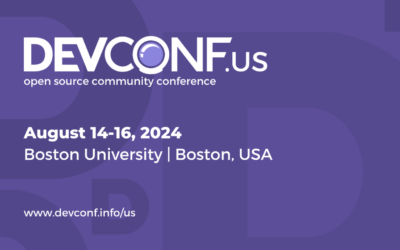Planning to attend the 2024 Red Hat Summit, May 6-9, in Denver, CO? Topics related to Red Hat Research, the MOC Alliance, New England Research Cloud, and the Red Hat Collaboratory at Boston University will be featured in several presentations on popular subjects like data analytics, AI and machine learning, edge devices, and RISC-V. Click on a presentation title to add it to your schedule.
Not going to Summit this year? Check out related reading from RHRQ and our website, set a reminder to watch any or all of the keynote livestreams on Red Hat’s YouTube Streams page, and come back for post-Summit updates.
AI at the edge—healthcare
The ChRIS Research Integration Service (ChRIS) is the result of long-term collaboration among the Red Hat Collaboratory, Boston University, Boston Children’s Hospital, and the MOC Alliance. Across global deployments—including recent deployment on the New England Research Cloud (NERC)—the ChRIS project takes up various roles from supporting translational imaging research at Boston’s leading hospitals to enabling cost-effective and advanced analytics, including AI workflows, in under-resourced communities.
ChRIS features in three presentations at this year’s Red Hat Summit:
Keynote: The Cloud is hybrid. So is AI.
Matt Hicks, President and CEO of Red Hat, and Ashesh Badani, Senior Vice President and Chief Product Officer, will be joined by Dr. Ellen Grant (Director, Fetal Neonatal Neuroimaging and Developmental Science Center at Harvard University, Boston Children’s Hospital) and Dr. Rudolph Pienaar (Staff Scientist, Boston Children’s Hospital) to discuss how Red Hat has helped Boston Children’s Hospital accelerate AI adoption for data science. The keynote will be live-streamed via YouTube Tuesday, May 7, at 8:00am MDT/10:00am EDT.
Revolutionary medical analysis at the edge with Red Hat OpenShift AI and RHEL bootable container
This breakout session with Máirín Duffy (Senior Principal UX Engineer, Red Hat), Raghuram Banda (Senior Specialist Solution Architect, Red Hat), and Dr. Rudolph Pienaar demonstrate how to update and deploy AI-based applications at edge locations, using Red Hat OpenShift AI in model serving and deployment and the newly-announced Red Hat Enterprise Linux bootable container solution for automated edge device updates.
Dr. Ellen Grant and Dr. Rudolph Pienaar, Boston Children’s Hospital
In this session, Drs. Grant and Pienaar will discuss the significant strides made in maternal-fetal healthcare using Red Hat OpenShift for artificial intelligence.
Machine learning and streaming data—smart cities
Red Hat Research engineer Christopher Tate was among the contributors to the Smart Village project, one of the recipients of the 2022 Red Hat Collaboratory Research Incubation Awards. The goal of this project was to develop smart city infrastructure to advance sustainability and involve citizens in smart operations. Through work with Smarta Byar and the city of Veberöd in Sweden, researchers from Boston University and Red Hat designed a platform that interfaces with data sources (e.g., IoT devices) and supports a digital twin model of the village on which smart services can be tested.
Collaborators later developed a smart village Ansible operator to visualize live smart traffic data in a Red Hat OpenShift Container Platform environment.
Visualizing live traffic data from edge-to-cloud environments
In this session, Chief Architect Michael Epley and Senior Principal Community Architect Jefro Osier-Mixon will lead a hands-on lab where participants will gain skills working with edge device data for a hybrid cloud environment. The lab demonstrates how device registration and data subscriptions work on a smart device running Red Hat Device Edge to publish data to NERC’s OpenShift environment.
Learn more about adaptive traffic light control:
- Building better communities with streaming data and machine learning using FIWARE: Chris Tate explains how engineers and graduate students worked together to design the Smart Traffic Light algorithm.
- Adaptive traffic light control for competing vehicle and pedestrian flows: Publication from BU Principal Investigator on the Smart Village project Christos Cassandras and PhD candidate Yingqing Chen.
- Can streaming data and machine learning build better communities?: Red Hat Senior Principal Marketing Manager Jim Craig details how OpenShift helps scale smart city applications like adaptive traffic light control.
RISC-V
For several years, Red Hat has been supporting RISC-V, an open standard instruction set architecture that enables a new era of processor innovation through open collaboration within Fedora. In 2024, Red Hat is taking greater steps to support this innovative and open hardware architecture.
Red Hat and RISC-V
In this talk, Jefro Osier-Mixon, Senior Principal Community Architect, explores some of the details and communities where we are participating and provides a demonstration of Fedora both in virtualized environments and in actual hardware. We also explore the communities where Red Hat is helping to lead the industry toward working with RISC-V, including the RISC-V Software Ecosystem project (RISE) and OpenHW Group. Join us to learn more about Red Hat’s involvement in RISC-V.
Learn more about RISC-V:
- RISC-V extensions: what’s available and how to find them: Extensions available in RISC-V enable the customizations that make it ideal as a basis for innovation. Richard Jones, Senior Principal Software Engineer in Red Hat’s R&D Platform team, explains the extension situation as it stands today.
- RISC-V for FPGAs: benefits and opportunities: Principal Research Software Engineer Ahmed Sanaullah explains why RISC-V is the ISA of choice for research involving Field Programmable Gate Arrays (FPGAs) and highlights some RISC-V prototypes currently evolving in Red Hat Research.
- Red Hat and RISC-V: to the far edge and beyond: Stephen Watt, Distinguished Engineer and Vice President, Office of the CTO, provides a glimpse into Red Hat’s view of the technical and business value of RISC-V and the opportunities converging with edge applications, AI, and next-generation infrastructure in this keynote from the RISC-V Summit (November 2023).


